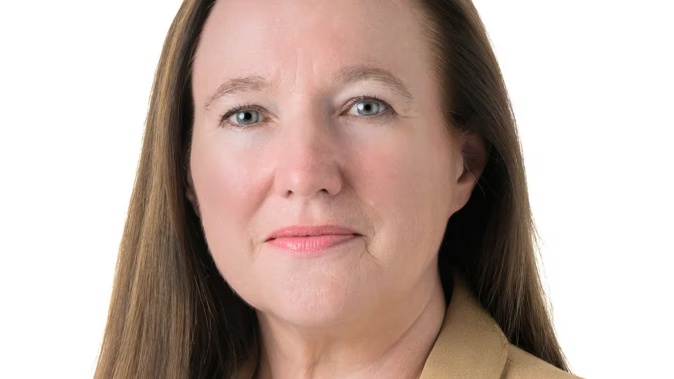
The New Zealand Superannuation Fund hit a record $76.6 billion valuation in the year to the end of June, an increase from the previous year’s $65.4b, largely due to impressive global share market returns.
“Declining inflation, positive macroeconomic data and optimism that generative AI technology will boost corporate profitability saw global markets perform exceptionally well,” the new chief executive of the Super Fund Jo Townsend wrote in its result announcement.
“Having global market indices so heavily dominated by such a small number of stocks, all of which are concentrated in one sector, is a very unusual situation.”
About half of the fund was passively invested in global and domestic stocks, with one quarter in fixed income and about another quarter in alternative investments such as private equity, venture capital, rural holdings, direct holdings, property and infrastructure.
The Veja Mate fixed bottom offshore wind farm in Germany, developed by Copenhagen Infrastructure Partners, which wants to build a one gigawatt windfarm off the coast of South Taranaki in collaboration with the NZ Super Fund. Photo / Port Taranaki
Townsend said the latter was leading to positive returns.
“The fund is more than $17b better off than if we had implemented a strictly passive, index-linked approach.”
The 14.94% return for the financial year just ended was after costs, but before it paid $1.5b in tax.
It received $1.6b in government contributions in the financial year.
The fund made its first investment in 2003 and over that time had outperformed its benchmark of beating Treasury bills by 6.5% per year.
The Government was expected to start withdrawing money from the fund in 2035, to help pay for superannuation payments.
“We manage the portfolio in order to achieve the best long-term results for New Zealanders, in line with our intergenerational mandate,” Townsend said.
“Our equity exposure is highly diversified across sectors and geographies, and our active investment strategies are designed to take advantage of market ups and downs as they occur.”
The fund had around 40% holdings in Datacom, Kaingaroa Timberlands and insurer Fidelity Life, as well as interests in housing in Auckland’s Hobsonville and hotels and rural farmland nationwide.
It increased its stake in Brussels-based investment business Euroclear to above 8% in June, making it one of the largest single investments in its portfolio.
The fund has previously owned Kiwibank, Metlifecare and Z Energy.
A legislation change this year now allowed the fund to take a controlling stake in entities, however it had not done so yet.
Madison Reidy is host and executive producer of the NZ Herald’s investment show Markets with Madison. She joined the Herald in 2022 after working in investment, and has covered business and economics for television and radio broadcasters.
Take your Radio, Podcasts and Music with you









